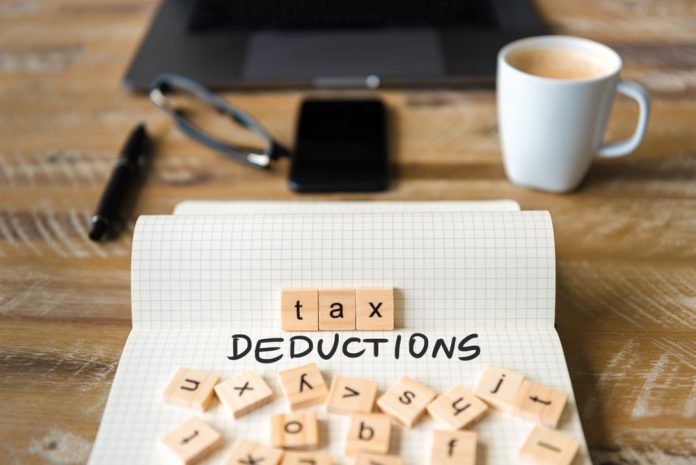By Brittany Hamilton
April is around the corner and entrepreneurs across America are anticipating the sweet smells of spring… and the gut-wrenching stress of tax deadlines.
But for the self-employed, there’s a flower for this thorn—and it’s deductions.
One of the simplest ways to reduce your income tax bill is to ensure you’re claiming all of the deductions available to you. To help you make the most of it, I’ve compiled a big list of write-offs that may be available to sole proprietors and small businesses.
Keep in mind that, depending on your business structure and purpose, some of these deductions may not be available to you, so I always recommend that you consult with your tax advisor or CPA before claiming a deduction on your return.
Advertising and promotion
It’s true that you have to spend money to make money and the IRS recognizes this golden rule. The cost of advertising and promotion is 100% deductible – this includes everything from the cost of printing business cards to boosting social media campaigns.
Business meals
You can deduct 50% of qualifying food and beverage costs. To do so, you’ll need to be able to show where and when the meal took place, and the business relationship of the person you dined with—sorry, but your daily latte addiction isn’t covered, unless you’re meeting a client.
Business insurance
You can deduct the cost of business insurance and if you have a home office, you can also deduct the cost of renter’s or homeowner’s insurance as a part of your home office deduction.
Business interest and bank fees
The interest you’re charged on business loans and credit cards is deductible. Additionally, you can deduct fees and bank charges for your business bank account, including one that most people miss: ATM withdrawal fees.
Business use of your car
Do you use a vehicle for your business? You can fully deduct the costs associated with its business-related usage, including the standard mileage deduction.
Not only that, but if you purchased a new vehicle during the tax year that’s used more than 50% for business, you can also deduct its depreciation on your return – check out the IRS site to see how much you’ll qualify for.
Charitable contributions
You can deduct charitable contributions made to qualified organizations. Pass-through entities deduct these costs on their personal tax return, while corporations deduct them on their corporate tax return.
Education
Educational costs are fully deductible if they add value to your business and increase your professional expertise. In order to decide if your class or workshop qualifies, the IRS will look at whether the expense maintains or improves skills that are required in your current business, so if you’re a personal trainer, your pottery class won’t likely make the cut.
Home office
The IRS has introduced a simplified method for calculating home office expenses. You’re able to deduct a standardized $5 per square foot of your home that is used for business, up to a maximum of 300 square feet.
In order to qualify for the home office deduction, your working area needs to be exclusively used for business activities (i.e. a desk, not the kitchen table), and it needs to be your principal place of business.
Investments
If you borrow money to invest, you can deduct interest paid, however, there are restrictions. Within a year, you can deduct investment interest up to the amount that you earned in investment income. If you have more interest than income from the investment, you can carry forward the additional interest to the next year.
Legal and professional fees
Legal and professional fees that are necessary and directly related to running your business are deductible. These include fees charged by accountants and bookkeepers.
Moving expenses
Long-distance moving expenses are fully deductible if the main reason for the move is work and you’ll be working full time, but there are specific distance criterias you’ll need to meet to qualify.
Music streaming service
If you use it to play music in the office while people wait, shop, or enjoy your product – your Spotify or Apple Music subscription is totally deductible.
Salaries and benefits
Salaries, benefits, and even vacation time paid to employees are generally tax-deductible.
Telephone and internet expenses
If you use your phone and internet connection for business, you can deduct the percentage of these expenses that are related to business use—be sure to keep records in case of an audit.
Make tax season a little more satisfying this year. By taking the time to look into where you spent your money, you may uncover some hidden deductions to save big on your tax return.
Brittany Hamilton is the Director of Operations at Bench Accounting, North America’s largest bookkeeping service. Bench services thousands of small businesses across America, giving entrepreneurs affordable access to financial insights and tax-ready financials.
Tax deductions stock photo by Constantin Stanciu/Shutterstock







